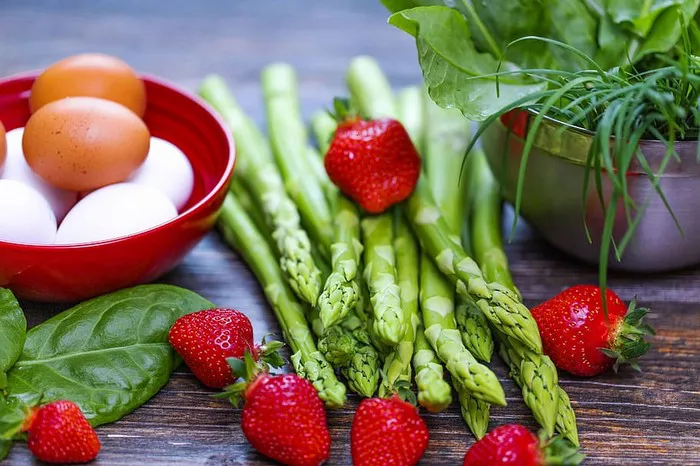In the pursuit of a healthy lifestyle, understanding what to avoid is as crucial as knowing what to include in your diet. Healthy eating is not just about embracing nutrient-dense foods; it also involves steering clear of items that can compromise your well-being. This comprehensive guide will shed light on the foods you should avoid to maintain a balanced and wholesome approach to healthy eating.
Healthy Eating Essentials: Avoiding the Pitfalls
Processed Foods and Sugary Snacks
One of the primary adversaries to healthy eating is the prevalence of processed foods and sugary snacks in our modern diets. These items often contain high levels of added sugars, unhealthy fats, and an array of artificial additives. Regular consumption of these foods has been linked to various health issues, including obesity, diabetes, and cardiovascular diseases.
Steering Clear of Processed Foods and Sugary Snacks in Healthy Eating
Processed foods such as chips, candies, and sugary snacks contribute empty calories to your diet, providing little to no nutritional value. Opt for whole, unprocessed alternatives like fresh fruits, vegetables, and nuts to satisfy your snack cravings while promoting healthy eating habits. Be vigilant about reading food labels, as even seemingly innocent items may conceal excessive sugars and unhealthy additives.
Sugary Beverages
In the realm of healthy eating, what you drink is just as important as what you eat. Sugary beverages, including sodas, energy drinks, and certain fruit juices, are laden with added sugars that can wreak havoc on your health. Regular consumption of these drinks has been linked to weight gain, insulin resistance, and an increased risk of chronic diseases.
Avoiding Sugary Beverages for Healthy Eating
For optimal health, choose water as your primary beverage. Water is essential for hydration and has zero calories, making it an ideal choice for healthy eating. If you crave flavor, infuse your water with fruits or herbs. When selecting fruit juices, opt for those without added sugars or, better yet, consume whole fruits to benefit from their fiber content.
Trans Fats and Unhealthy Cooking Oils
In the pursuit of healthy eating, steering clear of trans fats and unhealthy cooking oils is paramount. Trans fats are artificially created fats often found in processed and fried foods. Consuming trans fats raises bad cholesterol levels while lowering good cholesterol, increasing the risk of heart disease. Unhealthy cooking oils, such as those high in saturated fats, can have similar detrimental effects on your health.
Navigating Healthy Fats in Healthy Eating
Instead of trans fats and unhealthy cooking oils, incorporate sources of healthy fats into your diet. Avocados, nuts, seeds, and olive oil are excellent choices that support heart health. When cooking, opt for oils with a high smoke point, such as olive oil or coconut oil, to maintain the nutritional integrity of your food.
Highly Processed Meats
While protein is an essential component of a balanced diet, certain types of meat can be detrimental to your health when consumed in excess. Highly processed meats, such as sausages, hot dogs, and some deli meats, often contain preservatives, additives, and high levels of sodium. Regular consumption of these meats has been associated with an increased risk of cardiovascular diseases and certain cancers.
Balancing Protein Intake for Healthy Eating
Opt for lean, unprocessed sources of protein in your healthy eating plan. Include poultry, fish, legumes, and tofu as protein-rich alternatives. If you enjoy red meat, choose lean cuts and limit your intake. When preparing meat, opt for cooking methods such as grilling, baking, or steaming to retain nutritional value while avoiding the harmful effects of excessive processing.
Refined Carbohydrates and Sugary Cereals
Refined carbohydrates, such as white bread, sugary cereals, and pastries, can lead to spikes in blood sugar levels and provide minimal nutritional benefits. Healthy eating involves choosing complex carbohydrates that are rich in fiber and essential nutrients. Relying on refined carbohydrates can contribute to weight gain, insulin resistance, and an increased risk of type 2 diabetes.
Choosing Wholesome Carbohydrates for Healthy Eating
Incorporate whole grains such as quinoa, brown rice, and whole wheat into your healthy eating plan. These grains provide a steady release of energy, support digestive health, and offer a range of essential nutrients. Replace sugary cereals with oatmeal topped with fresh fruits and nuts for a nutritious and satisfying breakfast that aligns with your healthy eating goals.
Excessive Salt and Sodium-Rich Foods
While salt is a necessary component of a balanced diet, excessive sodium intake can lead to health issues such as high blood pressure, cardiovascular diseases, and kidney problems. Many processed and restaurant-prepared foods are laden with hidden sodium, contributing to a cumulative effect that can jeopardize your healthy eating efforts.
Balancing Sodium Intake for Healthy Eating
Limit your consumption of processed and packaged foods, as they often contain hidden sodium. When cooking at home, use herbs, spices, and other flavorings to enhance the taste of your meals without relying on excessive salt. Opt for fresh, whole foods, and be mindful of your sodium intake to promote healthy eating habits and maintain overall well-being.
Artificial Sweeteners and Diet Products
In the quest for healthy eating, the allure of artificial sweeteners and diet products may seem like a viable solution for reducing calorie intake. However, these substitutes come with their own set of concerns. Some studies suggest a potential link between artificial sweeteners and metabolic disturbances, altered gut microbiota, and an increased risk of weight gain.
Natural Sweetness in Healthy Eating
Rather than relying on artificial sweeteners, embrace the natural sweetness of fruits. Fresh fruits offer a plethora of vitamins, minerals, and antioxidants, making them a healthier alternative to satisfy your sweet cravings. If you must sweeten beverages, consider using small amounts of natural sweeteners such as honey or maple syrup.
Conclusion
In the pursuit of healthy eating, avoiding certain foods is as crucial as incorporating nutrient-dense options into your diet. Processed foods, sugary snacks, and unhealthy cooking oils can compromise your well-being, while whole, unprocessed alternatives promote optimal health. By being mindful of your choices and embracing a balanced approach, you can cultivate a lifestyle that supports your overall well-being and long-term health goals. Healthy eating is not just a diet; it’s a commitment to nourishing your body with the best possible fuel for a vibrant and fulfilling life.























